Food Studies News
Super Nutritious
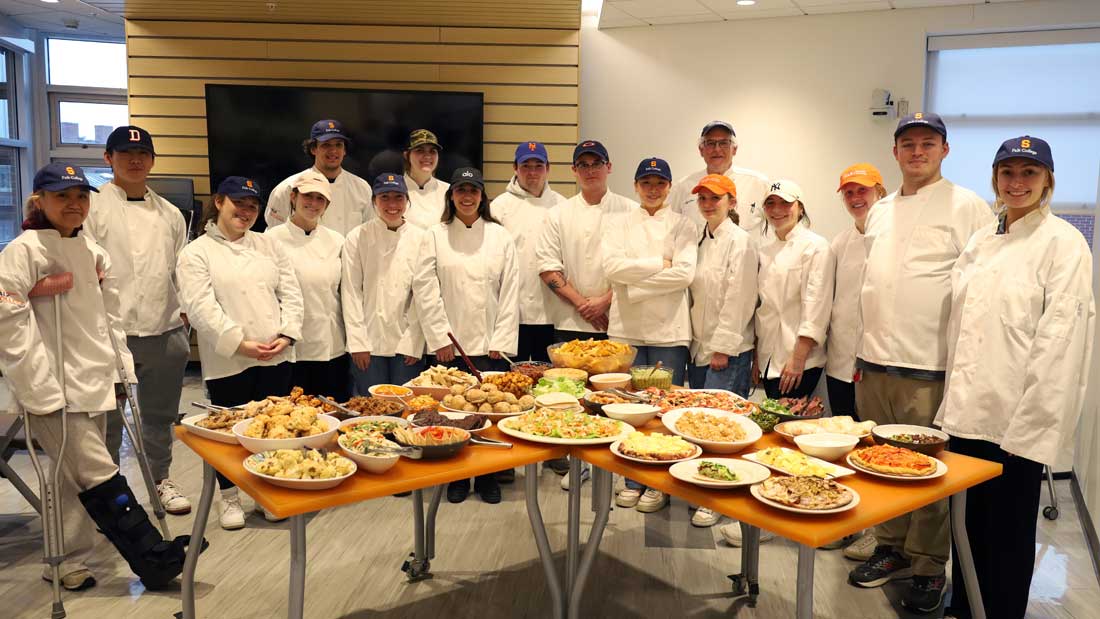
A Super Bowl celebration deserves a super feast of party snacks. Pizza, wings, chips, dip. But how do you indulge, without overindulging?
Bill Collins, assistant teaching professor of nutrition and food studies in the Falk College of Sport and Human Dynamics, advises a gameday plan: hydrate, try to make good choices and cook up some healthy substitutes.
Ahead of this weekend’s football showdown, Collins’ students in his Deconstructing Food class are exploring that topic this week—how to take your favorite ultimate indulgent snacks from high-calorie to healthy—or healthier.
In this SU News Q&A, Collins shared some tips for Super Bowl cooks and snack planners ahead of the big game. For any media who wish to schedule an interview with Collins, please contact Keith Kobland, associate director of media relations, at kkobland@syr.edu.
What can people do to pace themselves if there are a lot of overindulgent foods at a Super Bowl gathering?
Drink plenty of water. You’ll stay hydrated and suppress your appetite. Then think about what you may be eating. A percentage of items offered will be healthier than the others. Figure out which ones and stick to those. But it’s the Super Bowl so indulge responsibly.
If you are preparing food, what are some good substitutes (or healthier versions) for some of the high-calorie foods like chicken wings, chips and pizza?
Think about what you are going to make and where is it coming from. If you can make it from scratch, you have control of the ingredients.
- Gently poach some skinless chicken breasts, toss them with Buffalo sauce and serve them in a unique way like on a piece of lettuce or on a pita chip. It has the same flavor profile as the chicken wing.
- Spread hummus on a pizza dough and sprinkle brightly colored vegetables over the top.
- Make your own baked vegetable chips with beets, sweet potato and taro root. If a recipe calls for mayonnaise, use half non-fat Greek yogurt. The flavor profile will change but it’s a healthier alternative.
What if you do overindulge? How might you compensate the following day or week with your diet?
Get in front of the mirror and ask yourself why. You control what enters your body so make good decisions. If you overindulged just try to be smart the next few days, eat healthier and stay hydrated.
What’s your favorite game-day food and substitute?
I really love a barbequed pulled pork sandwich with a slaw of some sort. In class this week we are trying to take a small amount of pulled pork with a homemade sauce and some fresh Asian slaw and wrap it in a bao bun and put it in a bamboo steamer. The homemade sauce will reduce added sugars and sodium by over 70%. The portion size of the pork—and it’s saturated fats—will also be reduced significantly.
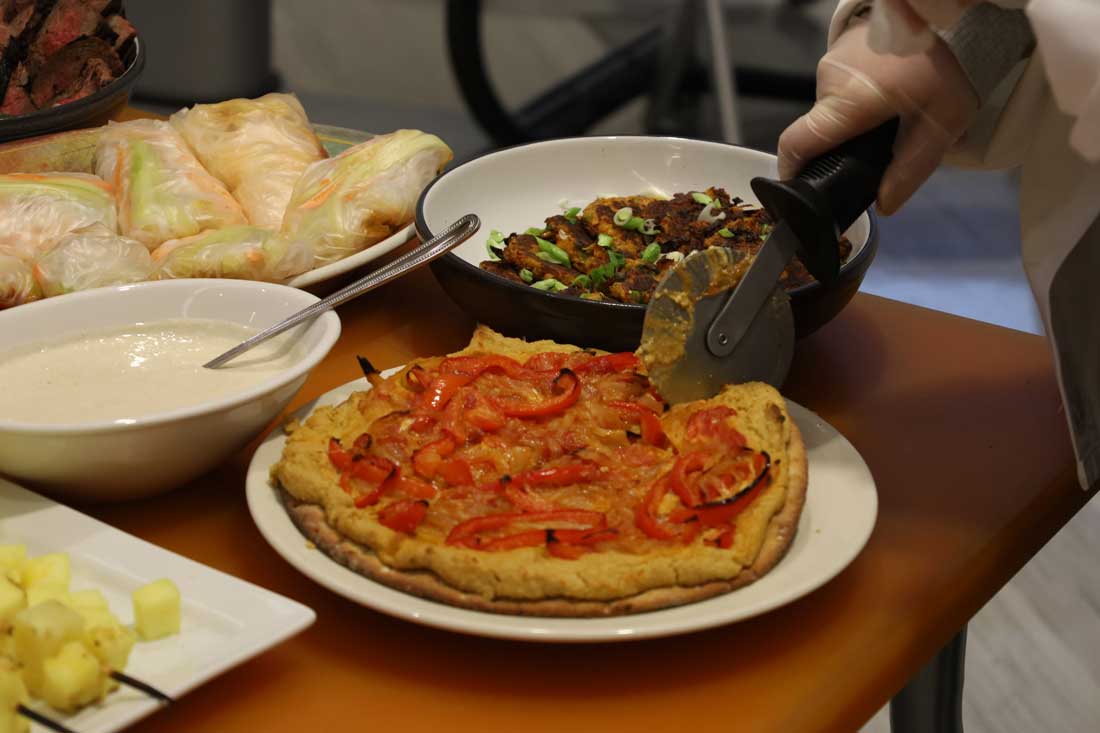
What is your course Deconstructing Food about?
It’s the first semester we are running the class. Prerequisites are that you have taken a class in the Falk kitchens. What we try to do each week is to think about food differently. What’s in it? What is the nutritional analysis? How can we make it healthier and taste above expectations?
The students are dictating what categories of food we are exploring as they are the demographic consuming the food. This week, as requested, we are executing a fresh look at Super Bowl food. We’ll see how we do…
A Syracuse University News story by Kathleen Haley originally published on Feb. 6, 2025.
Trust the Process
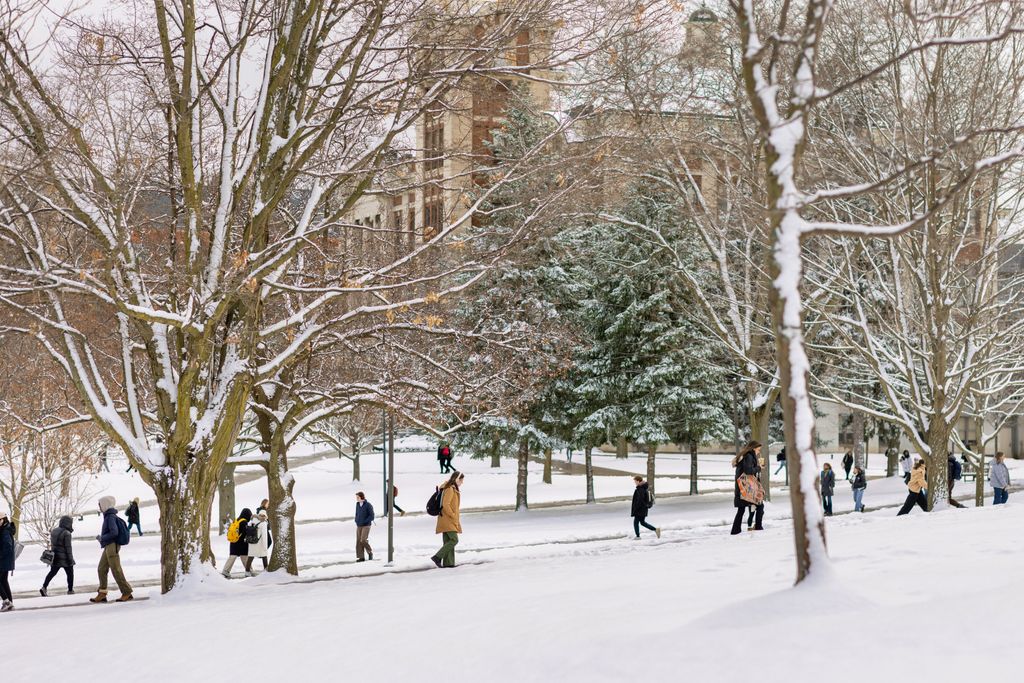
Bitter winds.
Heavy snow.
Freezing temperatures.
As students at Syracuse University, we’re no strangers to the biting cold of winter. From braving the winds on the way to classes to layering up for the occasional snowstorm, we’ve all learned to deal with the chill. But what if I told you that our bodies are biologically hardwired to do more than just survive in the cold? What if cold exposure could trigger processes that have been essential to human survival for millennia?
Cold-induced thermogenesis (CIT) is a biological process where our bodies generate heat in response to cold temperatures. While it might seem like an automatic reaction–something that happens without us really thinking about it–it’s actually entrenched in evolutionary history. Our ancestors relied on this process to keep warm in the harshest climates. Now, in an age of central heating and thermal clothing, it’s easy to forget just how crucial this adaptation was, and still is, for survival.
As global temperatures fluctuate due to climate change, extreme weather conditions–both hot and cold–are becoming more common. In this context, understanding CIT takes on a new relevance. While we’re no longer dependent on CIT for survival in the way our ancestors were, this mechanism gives perspective into how humans might continue to adapt to a changing environment.
At its core, CIT is a mechanism that helps the body maintain homeostasis when exposed to cold environments. Homeostasis is the body’s ability to maintain a stable internal environment, keeping factors such as temperature, pH, and energy levels balanced despite external changes. One of the key components in this process is brown adipose tissue, commonly known as brown fat. Unlike the white fat that stores energy, brown fat burns calories to generate heat.
A study published in Cell Metabolism (2010) found that, when exposed to cold, brown fat can increase energy expenditure by up to 30 percent, demonstrating the body’s powerful ability to adapt to cold exposure. This thermogenic response is facilitated by uncoupling protein 1 (UCP1), which allows brown fat to generate heat without producing ATP, effectively helping to combat cold stress. This is no small feat; our bodies can essentially turn fuel into heat to battle frigid conditions.
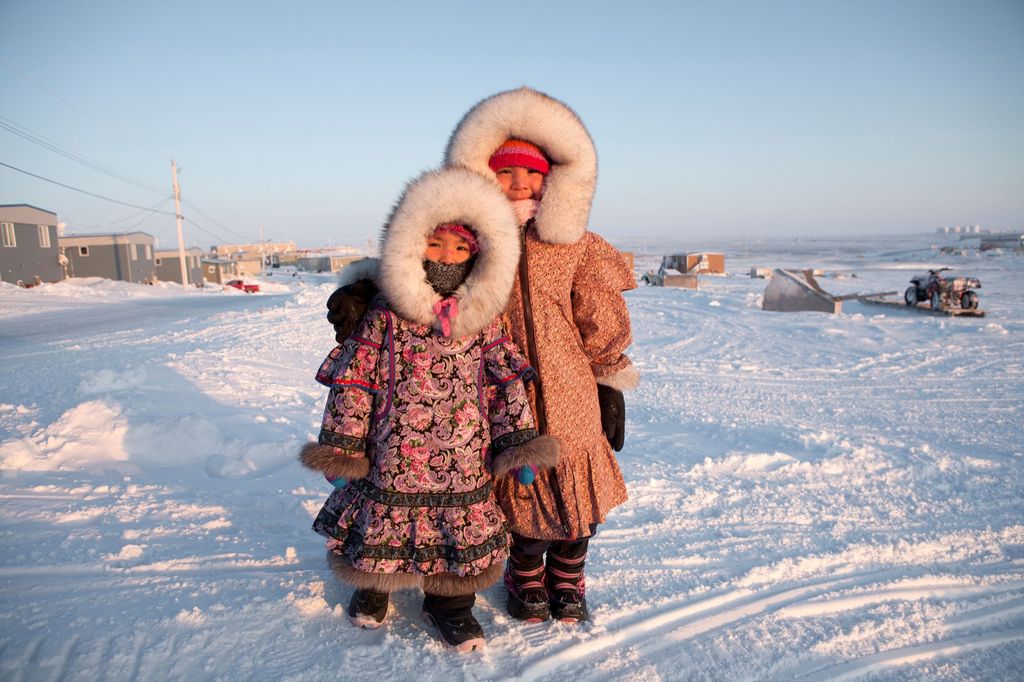
But CIT isn’t just a modern quirk of biology. It’s an ancient survival mechanism that has helped humans thrive in some of the most unforgiving environments on Earth. Take, for instance, the Inuit populations of the Arctic, who historically lived in extreme cold with limited access to heat sources. Studies on cold adaptation, such as research by Ocobock et al. (2022), have demonstrated how populations in colder regions exhibit higher metabolic rates and greater activity in brown fat, further highlighting the biological importance of CIT in human evolution.
Our ability to generate heat in response to cold is an evolutionary advantage that has shaped human survival for thousands of years. Humans evolved in diverse climates, many of which posed significant challenges for maintaining body temperature. Before the invention of modern heating, insulated clothing, or even fire, CIT played a critical role in our ancestors’ ability to endure and thrive in frigid environments.
By generating heat internally, humans were able to explore and settle in regions that would otherwise be uninhabitable. The survival of early humans in colder climates is in part due to this intrinsic adaptation; that is, a biological safeguard against environmental extremes. For example, humans can generate heat through shivering, which significantly increases metabolic rate and helps maintain core body temperature.
In many ways, CIT reflects our capacity for toughness, not just as individuals, but as a species. The fact that our bodies can adapt so effectively to cold environments is an indication of the evolutionary ingenuity that has allowed humans to thrive in some of the most inhospitable places on Earth. While modern conveniences such as heating and thermal clothing have lessened our reliance on CIT, they have also distanced us from the natural processes that once shaped human survival. As we rely more on artificial warmth, we may inadvertently weaken our natural resilience. This detachment can manifest in various ways, including a reduced capacity for thermoregulation and potentially an increased vulnerability to environmental stressors.
Moreover, in an age where both human biology and the environment are under increasing pressure, taking a closer look at the mechanisms that have kept us alive through millennia could reveal new approaches for resilience.
Today, the relevance of CIT goes beyond evolutionary curiosity. As climate change continues to alter global weather patterns, extreme cold spells are becoming more frequent and severe in many parts of the world, including Syracuse. Understanding how our bodies naturally respond to cold might help us better adjust to these changes.
While cold exposure can be uncomfortable, it triggers processes that might make us tougher. Integrating CIT into daily life doesn’t require ice baths or Arctic expeditions. Studies suggest that repeated exposure to mild cold through activities such as cold water swimming or spending time outdoors during winter can help improve our tolerance to the cold over time. Small, practical steps can make a difference. One could even try cold showers or short bursts of cold-water exposure.
On a larger scale, this could become important as more regions experience drastic seasonal temperature shifts. While we continue to face environmental challenges, both immediate and long-term, the study of CIT may offer important viewpoints into how we can better navigate an unpredictable world. It provides potential for adaptation and survival in the face of future climate challenges.
It also raises interesting questions about how much we’ve lost touch with our natural ability to adapt to harsh environments and whether reconnecting with these biological responses could benefit us in the future. Falk College’s commitment to interdisciplinary research, spanning public health, nutrition, and exercise science, ensures that students and researchers alike are equipped with knowledge to address these challenges in both practical and academic ways.
So, the next time you step outside into the Syracuse cold, remember that your body is doing far more than just shivering–it’s tapping into an ancient survival mechanism that has enabled our species to thrive in some of the harshest environments on Earth. Trust in that process; your body is equipped with strategies honed over millennia to protect and sustain you.
Sudiksha Khemka ’28 is a nutrition major in the Department of Nutrition Science and Dietetics in the Falk College of Sport and Human Dynamics. She will be a regular contributor to the Falk College website, and she also writes a regular column in the Daily Orange.
Welcome Back!
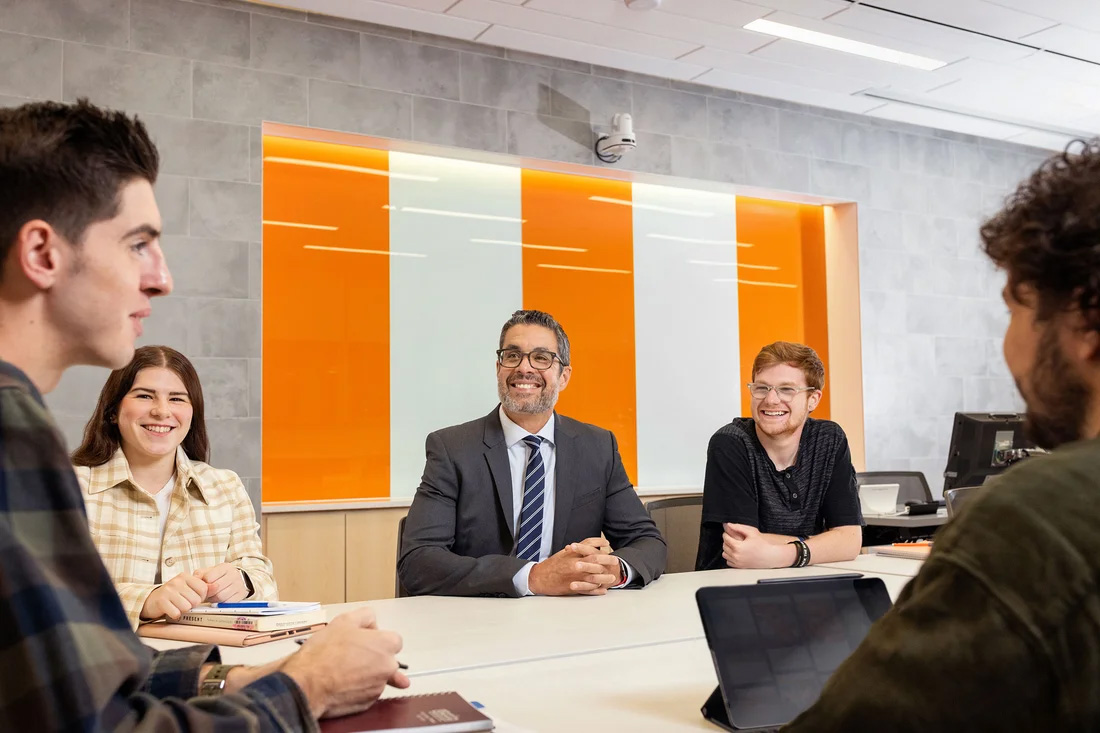
Dear Falk College Students,
Welcome back to Syracuse University! I hope you had a joyous holiday season and an opportunity to relax, spend time with family and friends, and enjoy the football team’s convincing win over Washington State in the Holiday Bowl!
I’m excited about the new semester and I look forward to watching all you will accomplish as you pursue your academic and professional goals this spring. As classes begin, I want to remind you of resources at Falk College and on campus that will help you succeed:
Official Syracuse University Communications
Syracuse University email is the primary communication method at the University. Your professors and University offices will contact you with important information using your Syracuse University email address (ending in “@syr.edu”), not your personal email address. It’s important to read your University email at least once every day so you’re aware of the latest information that’s essential to you.
Student Support Services
Falk College Student Services is an important resource in your support system at Syracuse University. Student Services counselors are here to provide you with academic advising and help you meet your requirements and goals. They are also your resource for private consultation related to student social and emotional concerns. If you have any concerns this semester, please contact Student Services or visit Falk 330, Barclay Suite, in the Falk Complex.
I encourage you to connect with the staff at Falk Career Services who can help you prepare for life after college through career exploration, internship and job searching, professional networking, and more. They are also located in Falk 330, or you can search for opportunities through Handshake, the University’s job search and professional events portal.
In addition, you can connect to spiritual life on campus at Hendricks Chapel, and health and counseling services in the Barnes Center at the Arch.
Student Spaces in Falk College
The Student Lounge, located in Falk 216, is available to you anytime the Falk Complex is open. The lounge has a microwave, refrigerator, and vending machines for student use. Across the hall from the Student Lounge is Falk Café, which is open from 8:00 a.m. to 3:00 p.m. Monday through Friday starting Jan. 13. Visit the Food Services website for up-to-date operating hours for cafés and dining centers across campus.
There are several computer labs in the Falk Complex. Falk 113 is a PC lab, and Falk 229 is a quiet study area that has both PCs and Macs available for your use. Both spaces are available to students at any time. Falk 400 and 407 are PC labs that are also used as teaching classrooms. When class is not in session, they are open for student use. You may check their schedule of availability using the 25Live website. You may also use the quick-print stations in Falk 216 and 229 for printing and email. These stations log out automatically after 10 minutes of use.
Ways to Get Involved
There are more than 300 student organizations at Syracuse University. Be sure to explore organizations that might be outside your usual interests, too. Remember, this is a great way to meet new people and discover something new about yourself!
There are many exciting events planned for Spring 2025, starting with the historic 40th Annual Rev. Dr. Martin Luther King Jr. Celebration Jan. 26 at the JMA Wireless Dome and leading to Commencement Weekend May 10-11. You can find more activities and events on campus by visiting the Syracuse University Calendar. For more resources and opportunities to make the most of your Syracuse experience, I encourage you to visit syracuse.edu/life/students.
I wish you the best this semester and please reach out to us if you’re in need of services and support. On behalf of the Falk faculty and staff, I wish you continued success on your journey here at Falk College and the wider Syracuse University community.
Go Orange!
Jeremy S. Jordan, Ph.D.
Dean
Falk College
Lunch is Served
In November and early December, Nutrition Science and Dietetics students from Teaching Professor Mary Kiernan’s NSD 216 class hosted lunches for members of the campus and Syracuse communities in the Susan R. Klenk Learning Café in Falk College.
The students planned, prepared, and served the lunches under the supervision of Chef Kiernan. As an example of the delicious lunches that were served, here’s the menu for the Nov. 19 lunch:
Escarole & Romaine Salad with Pears & Apples in Lemon Vinaigrette
Louisiana Gumbo with Celery Root
Vegetable Lasagna with Garlic Baguette
Roast Cornish Game Hen with Carrots, Apples, Onions on Chive Mashed Potatoes
Pumpkin Ice Cream with Caramel Drizzle
Asian Snow Fungus Pear Herbal Soup
Apple Cider “Sangria”
The lunches will resume next fall. For more information about the lunches or to reserve a spot for next fall, contact Nutrition Science and Dietetics Administrative Assistant Roxanne Tupper at rmtupper@syr.edu.
At the Table
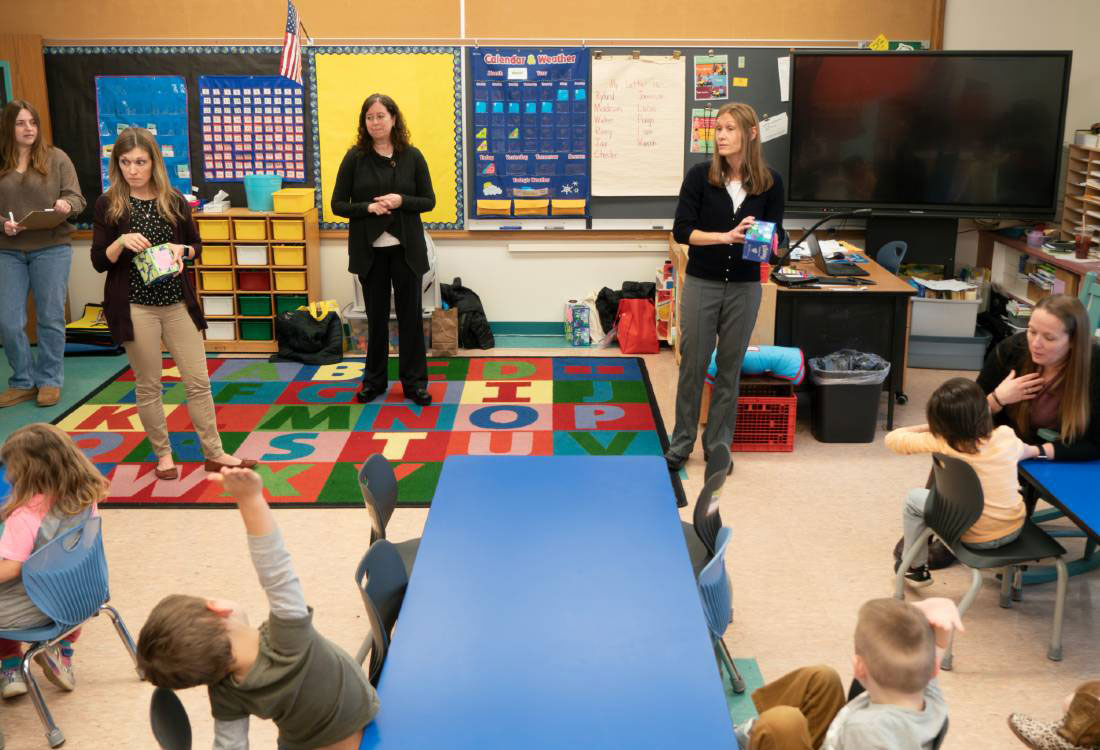
Rachel Razza, Associate Dean of Human Dynamics and professor in the Department of Human Development and Family Science, and Lynn Brann, associate professor and chair of the Department of Nutrition and Food Studies, recently appeared together on the “At the Table with Sara & Juli” podcast.
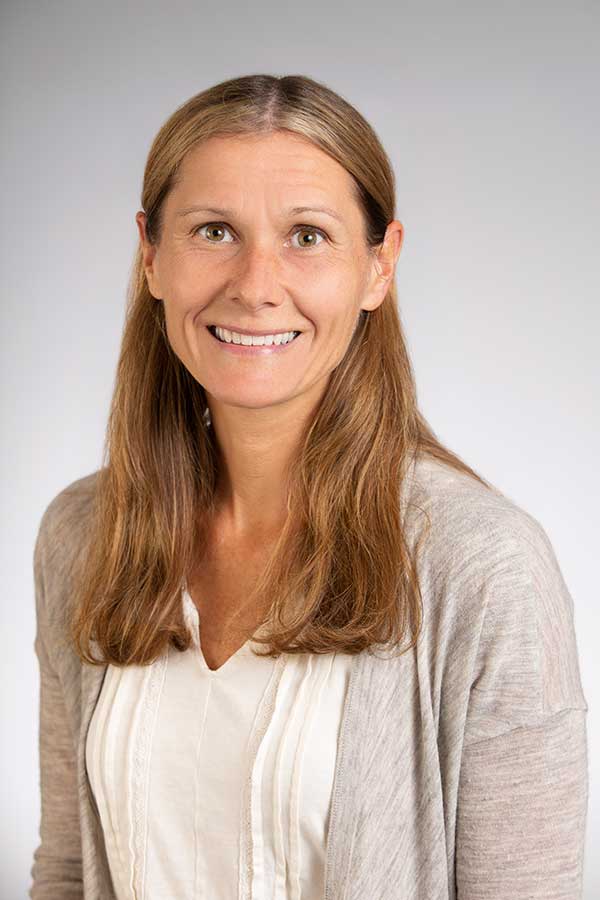
The topic of the podcast was “self-regulation and diet, intuitive eating, and child and teen development,” and you can listen to it on Apple Podcasts.
Razza, Ph.D., and Brann, Ph.D., RDN, FAND, discussed how diet and self-regulation are related based on their research in the SELF (Social-Emotional Learning and Functioning) Regulation Laboratory in the Falk College of Sport and Human Dynamics.
Razza’s research focuses on the benefits of mindfulness-based programs for promoting resilience in schools and communities, while Brann’s areas of expertise child nutrition, dietary assessment, childhood obesity, and nutrition education. Together, they created the Mindfully Growing curriculum for preschool children that combines mindfulness practices with nutrition education and is currently being implemented in the Jordan-Elbridge Central School District.
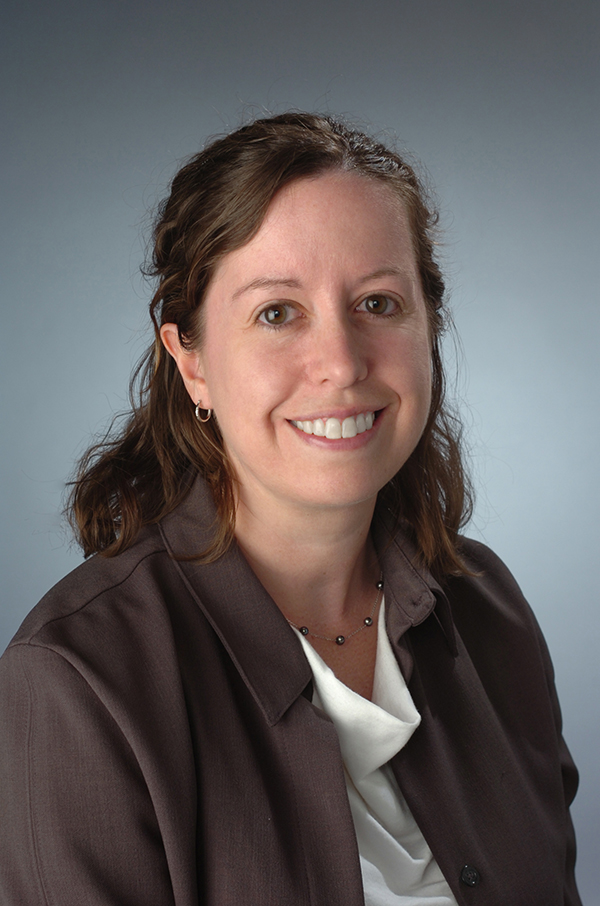
According to the “At the Table” website, the podcast is hosted by two moms, Sara and Juli, who are pediatric Registered Dietitians and wine enthusiasts who invite listeners to join them for insightful conversations about all things food-related–and a glass of wine to keep the discussions fun and lighthearted. One of the hosts, Sara Quinteros, received her Master of Science in Nutrition from Falk College in 2015 and operates her own hospitality and nutrition consulting firm.
Visit the Nutrition Science and Dietetics webpage and the Human Development and Family Science webpage to learn more about their academic programs, experiential learning, and career opportunities.
Falk College FAQs
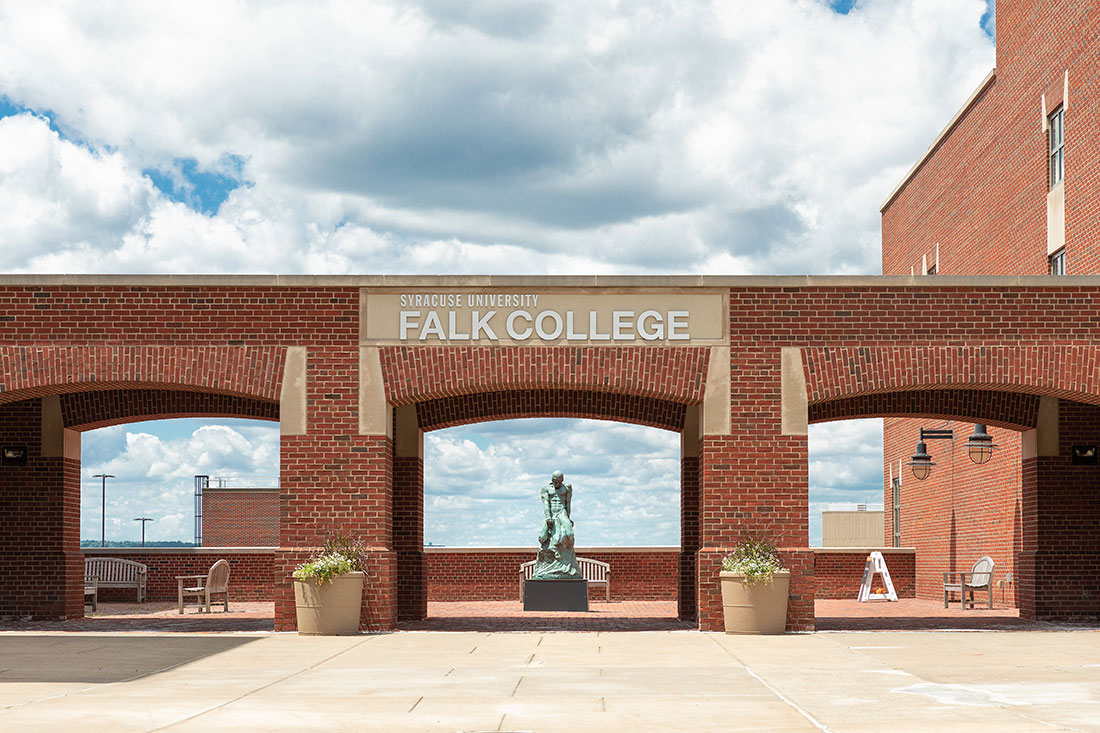
On Nov. 13, Syracuse University announced a go-forward plan to reshape the future of its human dynamics programs and reposition them for short- and long-term success. Here are frequently asked questions about the announcement:
What is the main objective of reshaping Syracuse University’s human dynamics programs?
The primary goal is to reposition and strengthen these academic programs to ensure their success and growth both in the short- and long-term. By consolidating programs and aligning them with colleges that have stronger academic synergies, Syracuse University aims to enhance the community impact, drive enrollment growth, advance research excellence, and better serve students and the broader communities in human, health, and social services.
What specific changes are being made to the human dynamics programs?
The reshaping plan involves the following key changes:
- Human Development and Family Science will merge with Marriage and Family Therapy, becoming one department (i.e., HDFS) within the College of Arts and Sciences.
- Public Health will move to the Maxwell School of Citizenship and Public Affairs.
- The School of Social Work will be housed in the School of Education.
These changes are designed to improve academic collaboration, expand research opportunities, and better align these programs with complementary academic disciplines.
When will these changes take effect?
The changes will go into effect on July 1, 2025. Students graduating through August 31, 2025, will participate in the Falk College of Sport and Human Dynamics commencement ceremonies, and students graduating after Sept. 1, 2025, will be participating in the commencement ceremonies of their new school or college. All students impacted by this transition will continue to receive their diploma from Syracuse University that includes their degree.
How were these changes determined?
These changes were based on an extensive four-month assessment conducted by the Human Dynamics Task Force, which involved input from faculty, students, alumni, and community stakeholders. The task force analyzed the current state of these disciplines, both on campus and at peer institutions, and provided recommendations, which in large part informed the go-forward plan.
Will students already enrolled in these programs be impacted by these changes?
Students currently enrolled in these programs will continue their studies as planned. Starting in Fall 2025, students enrolled in these programs will be placed within the school or college that houses their respective degree program.
Where will faculty and staff in the human dynamics programs be located after the changes?
Faculty and staff in the human dynamics programs will remain physically located in MacNaughton and White Halls–and Peck Hall for the Department of Marriage and Family Therapy–for the foreseeable future, even after the programs are realigned with other colleges.
What are the benefits of these changes for students and faculty?
For students, these changes will lead to stronger academic programs with greater interdisciplinary collaboration, enhanced research opportunities, and better preparation for future careers in human, health, and social services. For faculty, the realignment fosters stronger collaborations across colleges, supporting faculty scholarship and providing a more robust environment for research excellence.
Why is Syracuse University making these changes now?
The changes reflect Syracuse University’s commitment to adapting to the evolving educational landscape and ensuring that its human dynamics programs are positioned for long-term success. This restructuring will allow the programs to better meet the needs of students, faculty, and the communities they serve, while fostering greater academic synergies and promoting growth.
What role did the Human Dynamics Task Force play in these decisions?
The Human Dynamics Task Force, co-chaired by Falk College Associate Dean of Human Dynamics Rachel Razza and Associate Provost for Graduate Studies and Dean of the Graduate School Peter Vanable, played a central role in assessing the current state of the programs, gathering feedback from stakeholders, and formulating strategic recommendations. Their work involved cross-disciplinary collaboration and was instrumental in shaping the final plan for the realignment of these programs.
What is the long-term vision for the human dynamics programs at Syracuse University?
The long-term vision is to create stronger, more integrated programs that foster greater collaboration across disciplines and elevate the university’s impact in fields like human development, public health, marriage and family therapy, and social work. By realigning these programs with other colleges, the university aims to drive enrollment growth, enhance research, and better prepare students for professional careers in the human, health, and social services fields.
Go-Forward Plan
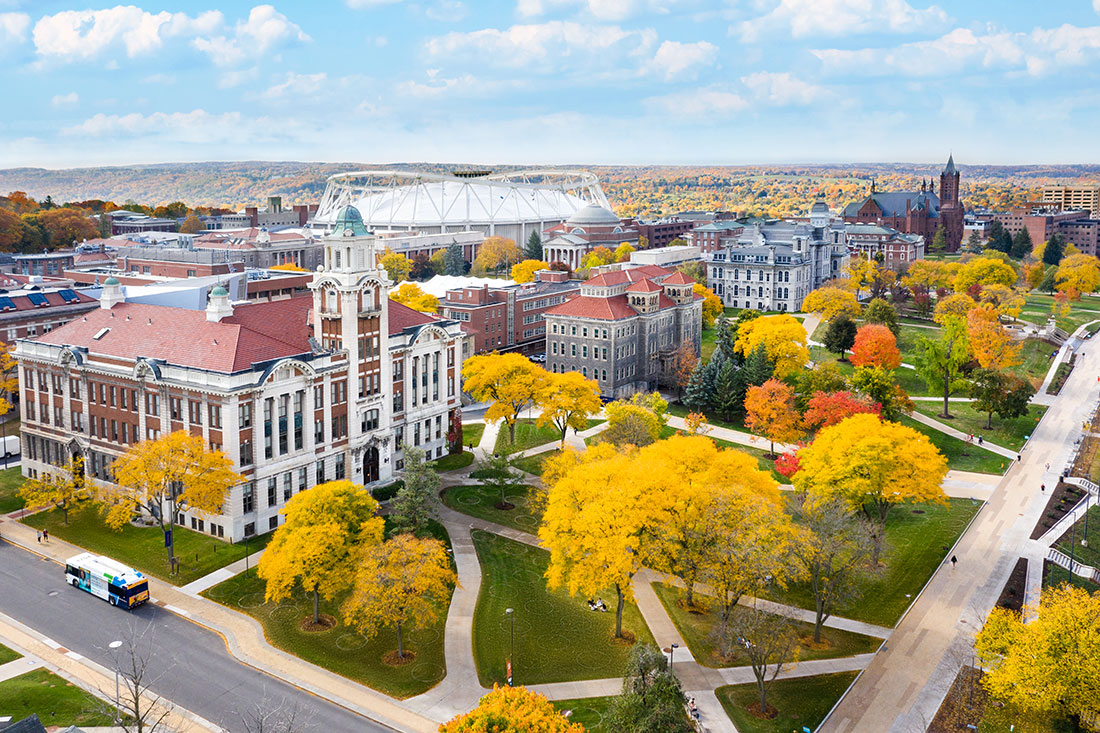
Following four months of deliberate assessment and cross disciplinary collaboration by members of the Human Dynamics Task Force, Syracuse University today announced a go-forward plan to reshape the future of its human dynamics programs and reposition them for short- and long-term success. The plan includes the consolidation of two departments and relocation of all human dynamics programs from the David B. Falk College of Sport and Human Dynamics to other schools and colleges with stronger academic synergies.
“From the beginning of this process, my priority has been developing and implementing a plan that repositions and strengthens the human dynamics academic programs, research and communitywide impact,” says Lois Agnew, interim vice chancellor, provost and chief academic officer. “This repositioning elevates our human dynamics programs, fosters stronger collaborations across colleges, advances faculty scholarship and better serves our students and the communities we serve.”
In June, task force members began assessing the current state of the human dynamics disciplines, both on campus and at peer institutions, aggregating feedback from key stakeholders and compiling recommendations for how these programs can be positioned for success and growth in the future. As part of the go-forward plan:
- Marriage and family therapy will merge with human development and family science and become one department within the College of Arts and Sciences.
- Public health will join the Maxwell School of Citizenship and Public Affairs.
- Social work will be housed in the School of Education.
These changes, informed in large part by task force recommendations, are designed to enhance the academic and community impact of these programs, grow enrollment, drive research excellence and strengthen the University’s long-standing commitment to preparing professionals to thrive in human, health and social services. They will go into effect July 1, 2025.
“I am grateful to the members of the task force for their thorough, thoughtful and strategic recommendations. I also extend my appreciation to the many students, faculty and staff who provided feedback along the way—through surveys, engagement sessions and other opportunities for submitting input. Their participation in this process and candid feedback were invaluable,” says Provost Agnew.
Today’s news follows an April announcement that the Falk College of Sport and Human Dynamics will become the Falk College of Sport, the first standalone college on an R1 campus that specifically focuses on sport through a holistic academic lens. As part of the Falk transformation, the University convened the Human Dynamics Task Force, co-chaired by Rachel Razza, associate dean for human dynamics, and Peter Vanable, associate provost and dean of the Graduate School. The task force, which consisted of human dynamics faculty representatives elected from each department, staff and community partners, delivered a final report to the provost last month.
“This work required a commitment to collaboration, a willingness to engage in challenging but necessary dialogue and a shared focus on the immediate and long-term future of the human dynamics academic disciplines,” says Vanable. “Associate Dean Razza and I are grateful to our fellow task force members for their time, dedication and outstanding work. We also appreciate the provost’s commitment to upholding the spirit of our recommendations and look forward to seeing these programs thrive in the future.”
Razza says, “Syracuse University has long been a leader in interdisciplinary education. The task force agreed that taking a reimagined approach to the human dynamics programs furthers our mission to provide students with a robust, future-focused education that emphasizes both theory and practice. I believe all members of the human dynamics community—students, faculty, staff and Central New York partners—benefit from this important realignment.”
Students currently enrolled in these programs will transition to their new schools and colleges effective July 1, 2025. Students enrolling in these programs in fall 2025 will matriculate into the school or college housing their academic program.
A Syracuse University News story originally published on Nov. 13, 2024.
Indian Home Cooking
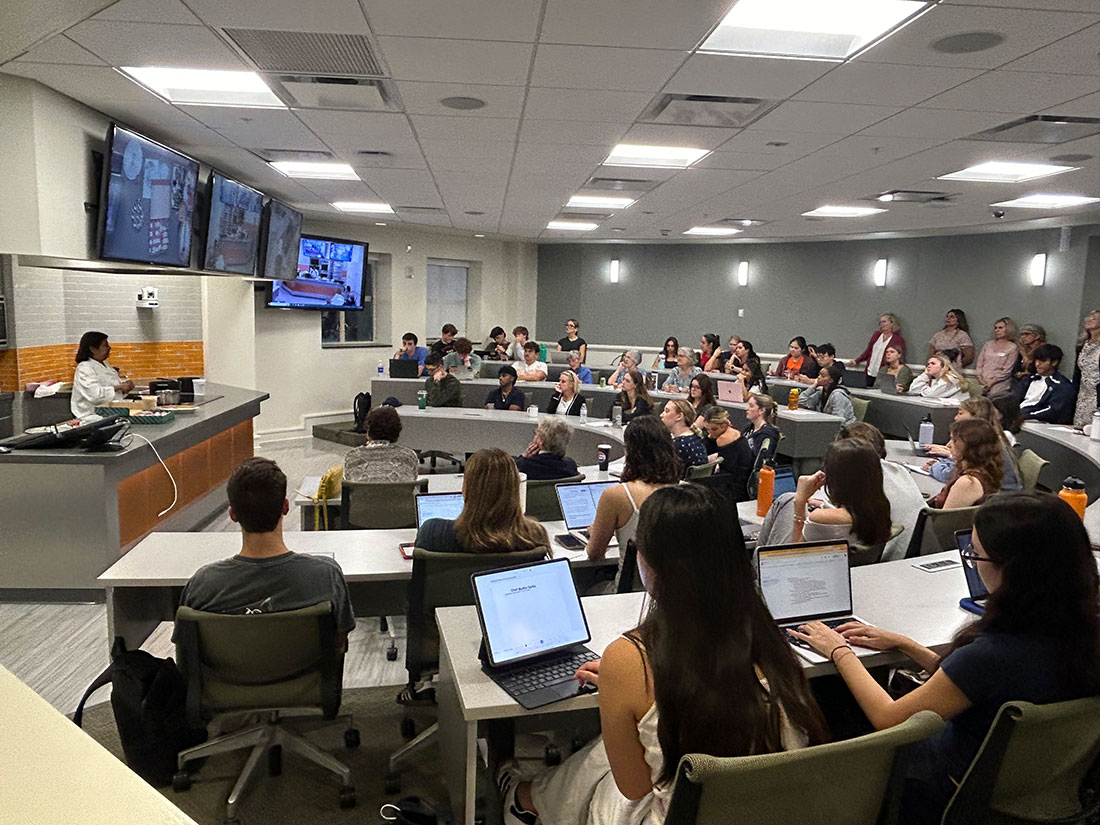
Renowned Chef Madhu Gadia says her passions are cooking and nutrition, and the way she shares her fondness for cooking and nutrition is through teaching.
In late October, students from the Department of Nutrition and Food Studies in the Falk College of Sport and Human Dynamics were able to witness Gadia’s enthusiasm first-hand and benefit from her teaching lessons as she was the featured speaker for the Joan Christy Lecture Series on Food and Culture.
The lecture series is made possible by the Christy Food and Culture Fund, which was established in 2005 through the generosity of Syracuse University nutrition alumna Joan Christy ’78, G’81 to provide support for a lecture series in the nutrition program. The annual event involves a discussion of the cultural foodways and a demonstration and tasting of select dishes from the cultural cuisine.
“These lecture series give students the opportunity to learn more outside the classroom and get exposed to new cultures and cuisines,” says Nutrition Science master’s student Kirsten Gunderson ’23, G’25. “I try to attend at least one lecture a semester through the Nutrition Department’s different lecture series because it allows me to gain a deeper insight on the many paths nutrition can take us. With Chef Gadia’s knowledge, students had the opportunity to learn how cooking can be joyous, healthy, and nurturing.”
Gadia, a Registered Dietitian Nutritionist and Certified Diabetes Educator, is known for her home-style, healthy, and authentic Indian cooking. The author of two popular books, “New Indian Home Cooking” and “The Indian Vegan Kitchen,” Gadia has more than 25 years of experience as a nutrition counselor, diabetes educator, writer, and speaker. Her areas of expertise includes healthy eating, weight loss, diabetes, cardiovascular disease, and other health/nutrition-related topics.
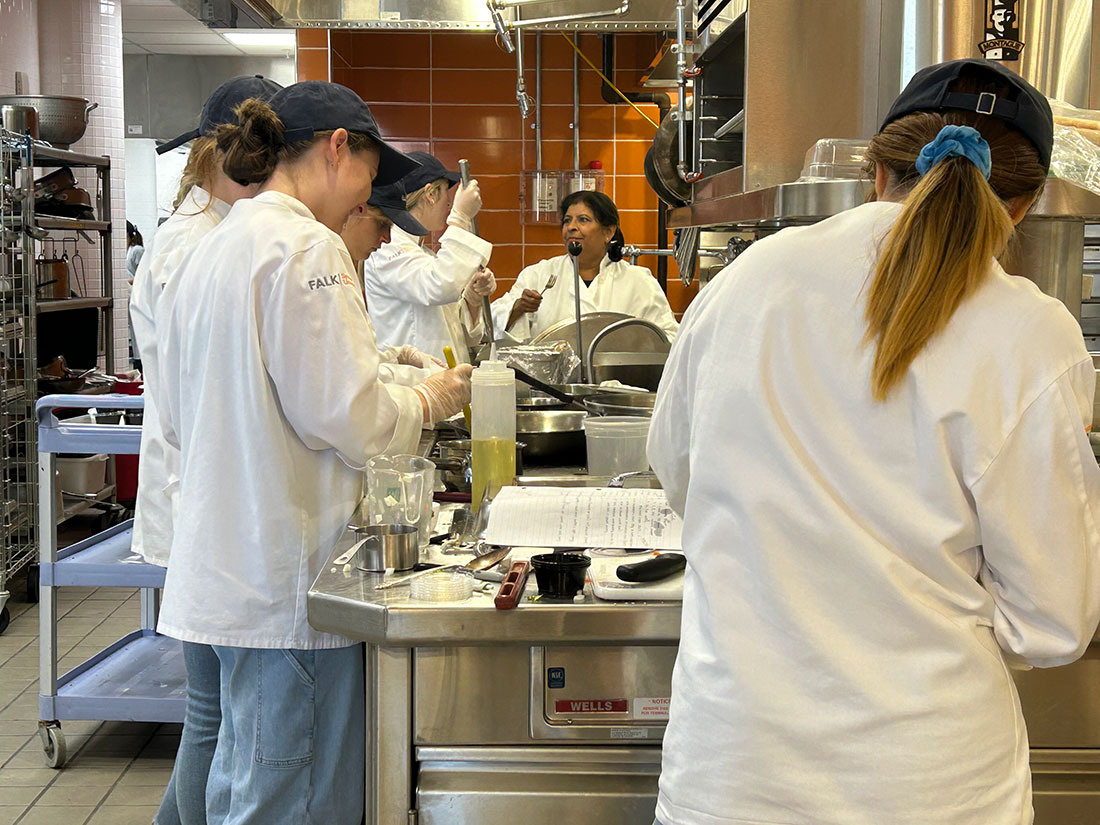
Before becoming a best-selling author, Gadia worked as a clinical dietician and diabetes educator. That led to invitations to conduct cooking classes in her hometown of Ames, Iowa, and as she started to accumulate recipes, she decided to write her first book, which eventually was purchased and distributed by the Penguin Publishing Group.
Mary Kiernan’s Food Service Operations class. During the class, the students created an Indian menu of basmati rice, chickpea curry, spicy new potatoes, and Cream of Wheat halwa for dessert.“During prep, I admired her meticulous approach to layering flavors; she emphasized that spices should not blend too early and provided specific instructions on when to add each one to enhance the aroma,” says nutrition major Daphnee Chu ’27, who oversaw the preparation of the chickpea curry. “I enjoyed discussing Indian cuisine with her, particularly the distinctions between North and South Indian dishes, which I find intriguing.”
Chu says learning from Gadia was a “fascinating experience,” and Gadia says she is always excited to impart her knowledge on a younger generation.
“The most important thing is that the teacher (Teaching Professor Kiernan) is giving them exposure to other cuisines and expanding their repertoire and interests,” Gadia says. “Maybe 10 years down the road they’ll say, ‘The first time I had Indian cuisine was when this teacher came in and told us how it all works.’”
In the evening, Falk College students, faculty, and staff packed Room 204 for Gadia’s demonstration, where she explained in detail how she cooked each of the dishes that the students helped make in the morning.
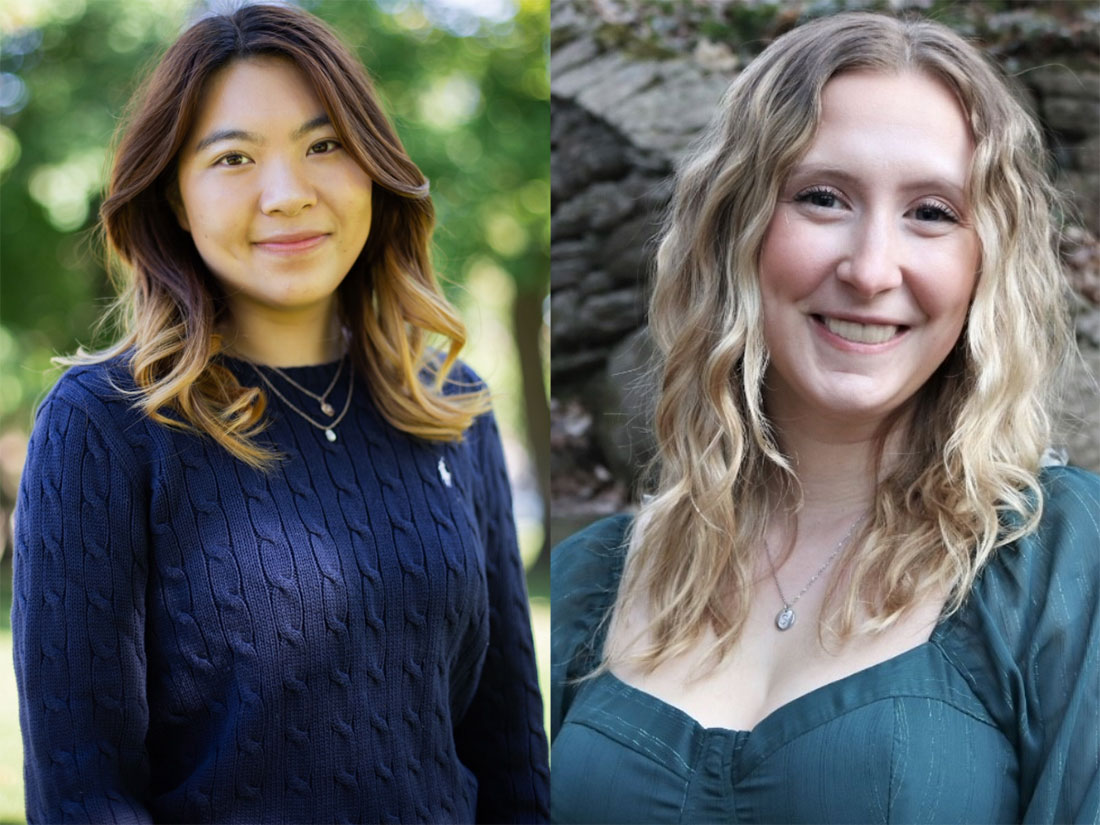
“Having tasted authentic Indian food before, I noticed that some of the spices Chef Gadia used were different from what I was accustomed to, despite both being labeled as ‘chickpea curry,’” Chu says. “During her lecture, she explained how ‘spiced’ Indian cuisine is, mentioning that 95 percent of Indian households don’t use curry powder.
“This insight surprised me, as I had never considered it before, and it made me realize that I had never encountered two Indian dishes that tasted exactly the same,” Chu adds. “This experience deepened my understanding of Indian food culture, and I’m grateful to Falk for the chance to work closely with Chef Gadia.”
As Gadia described her preparation and cooking methods during the demonstration, she emphasized that Indian foods are relatively easy to make, and they don’t have to be spicy. At the end of the demonstration, all attendees enjoyed samples of the food that Gadia and the students had prepared in the morning.
“My cooking mantra would be Indian cuisine is simple and easy, and people think it’s so complicated,” Gadia says. “I disagree with that, and my job is to show them how it’s simple and easy.”
Gadia says her nutrition mantra is that all foods, even some of the ones we consider unhealthy, can fit into a healthy diet. Gunderson says she appreciated the opportunity to spend time with a well-known chef and dietician who is equally focused on cooking and nutrition.
“Between her expertise in Indian cuisine and my novice understanding of it, I was able to take away so much,” Gunderson says. “Her comforting nature in the kitchen and the joy she got from cooking was evident throughout her presentation.
“I had not had a prior experience learning about Indian cuisine, but I was most interested in learning about the different spices and how they truly add to a dish,” Gunderson says. “Getting the opportunity to smell and try some spices that I never had before was exciting.”
Please visit the Nutrition Science and Dietetics webpage to learn more about academic programs, facilities, and career opportunities.
A Lifetime of Impact
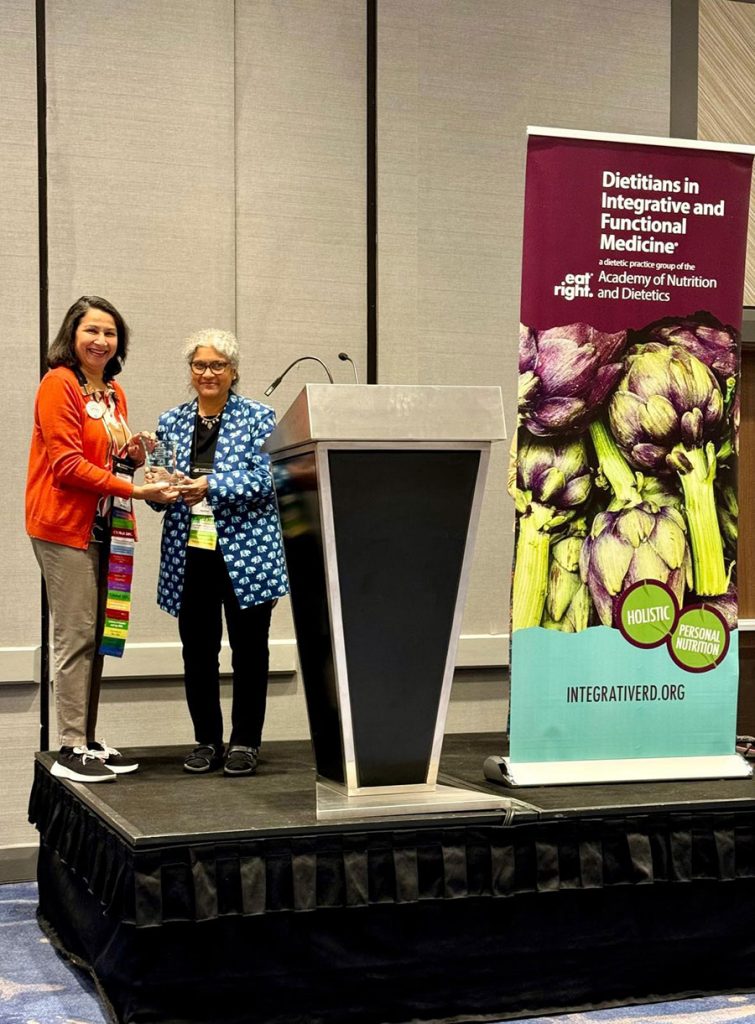
For more than 20 years, Department of Nutrition and Food Studies Teaching Professor and Graduate Program Director Sudha Raj has been providing support, guidance, and inspiration to generations of students who aspire to become dietetic professionals.
In early October, Raj was recognized for her impactful career in dietetics when she received the Lifetime Achievement Award from the Dietitians in Integrative and Functional Medicine (DIFM), a subgroup of the Academy of Nutrition and Dietetics.
“Sudha brings a whole-person approach to her teaching and mentoring of students and colleagues,” says Lynn Brann, associate professor and chair of the Department of Nutrition and Food Studies. “She willingly shares her time and knowledge with anyone who is curious to learn more about the benefits of nutrition.”
Raj, a Fellow of the Academy of Nutrition and Dietetics, received the award during the 2024 Food and Nutrition Conference in Minneapolis, Minnesota.
“I am honored and humbled to receive the DIFM Lifetime Achievement award,” Raj says. “My deepest gratitude to those who nominated me, my colleagues, students who continue to inspire me every day, and my family who have always supported me in all my endeavors.
“This incredible honor as a recognition of my work is inspiring and motivating to me,” she adds. “It encourages me to continue making a positive impact in the field of nutrition and dietetics.”
According to the DIFM website, the purpose of the Lifetime Achievement Award is to “recognize a DIFM member whose contributions over their lifetime have advanced the principles and practices of integrative and functional medicine and nutrition. This award will honor one who has ‘made a difference’ in education and professional development, furthered professional opportunities and advancement for nutrition and dietetics practitioners, and has demonstrated excellence as evidenced by work that is innovative, creative, and recognized as exemplary by professional peers.”
Raj has been a difference-maker on the Syracuse University campus and worldwide. She was instrumental in developing and implementing one of the first pilot studies to investigate dietary acculturation patterns in Asian Indian immigrants in the United States, and more recently she was one of two Academy of Nutrition and Dietetics members responsible for the inception of the member interest group for Asian Indians in Dietetics.
“Sudha has been a leader in the department and the nutrition and dietetics profession around integrative and functional nutrition for many years,” Brann says. “Due to her leadership and encouragement, several faculty attended a multi-day training to integrate these concepts into our courses and curriculum.
“Sudha has continuously supported the advancement of dietetic professionals practicing integrative and functional medical nutrition therapy by acting as an educator, scholar, and through her public service,” Brann adds.
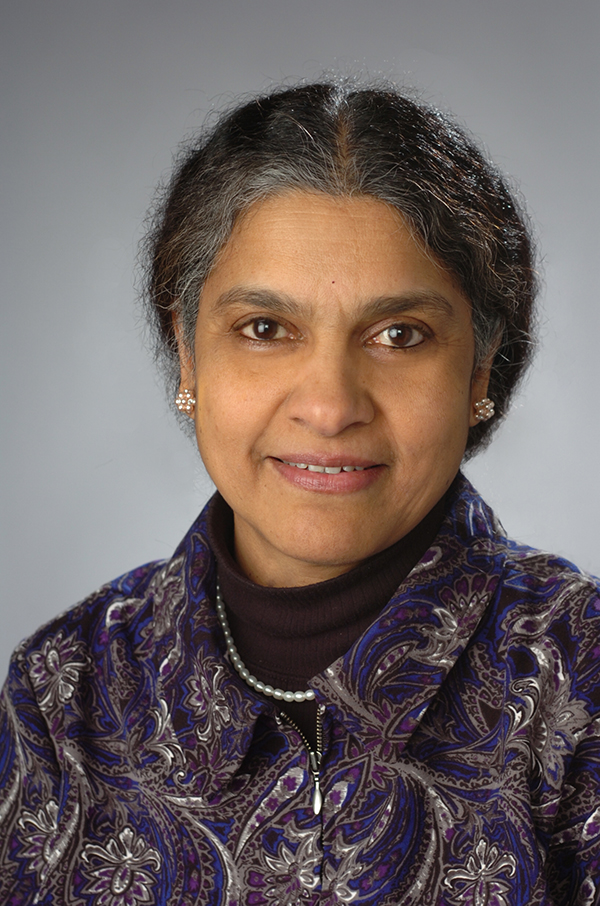
Richard says Raj’s vast and varied portfolio showcases her generous contributions to the profession, her students, and all those who benefit from her service.
“Sudha’s skills and attributes are not only admirable, but the lives she has touched with her contributions, advocacy, wisdom, and dedication to the profession are immeasurable,” Richard says. “She teaches with thoughtfulness, depth, and precision while using the Nutrition Care Process in addition to applying integrative and functional nutrition principles.
“In addition, her work ethic and commitment are further illustrated by her roles in her family and community, all while advocating for nutrition as an RDN, researcher, author, educator, leader and contributor in a variety of settings,” Richard says. “It is an honor and pleasure to call her colleague, mentor, and friend and to serve our profession alongside her.”
While the Lifetime Achievement Award signals a milestone in Raj’s career, it does not mark the end of it as she continues her mentorship of students and unique contributions to the practice of integrative and functional nutrition.
“My deepest thank you to my nutrition colleagues for their unwavering support and encouragement as I navigated the field of integrative and functional medicine as a specialty within the broad nutrition space over two decades,” Raj says. “They have helped me develop professional resources and curriculum for education and training.
“My DIFM colleagues have been wonderful mentors; they have educated and provided me several opportunities to share my knowledge in the form of professional development offerings for dietetic professionals,” she says. “I also want to acknowledge Syracuse University and Falk College for supporting my teaching and research interests and fostering my academic interests. I hope I can continue to provide support and inspiration for the next generation of dietetic professionals.”
Innovative Leaders
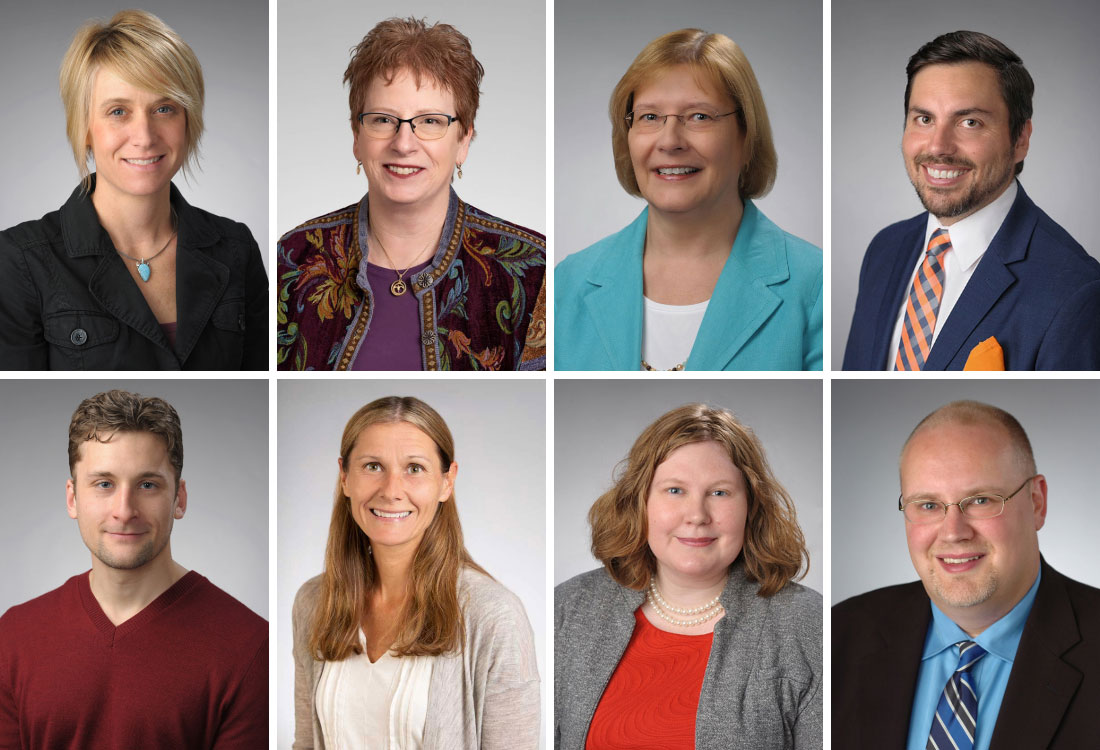
The Falk College of Sport and Human Dynamics is proud to announce the promotion of the following eight distinguished faculty members for the 2024-25 academic year:
Jane Burrell and Mary Kiernan from the Department of Nutrition and Food Studies; Jennifer Genovese and Ryan Heath (with tenure) from the School of Social Work; Bryce Hruska (with tenure) from the Department of Public Health; Rachel Razza and Sara Vasilenko (with tenure) from the Department of Human Development and Family Science; and Patrick Walsh from the Department of Sport Management.
The departments’ Promotion and Tenure committees, along with the Falk College Promotion and Tenure Committee, recommended the promotions after reviewing the faculty members’ areas of teaching, scholarship, research, and service. Recommendations from the Falk committees and Falk College Dean Jeremy S. Jordan were submitted to the Syracuse University Office of Academic Affairs and the University’s Board of Trustees, which granted the promotions.
“The recent promotions at Falk College reflect the exceptional caliber of our faculty,” Jordan says. “These individuals have demonstrated outstanding achievements in teaching, scholarship, and service as rigorously evaluated by departmental and college-wide committees and external reviewers. Their advancement is a testament to their significant contributions and the high standards of excellence we uphold at Falk College and Syracuse University.”
Here’s a look at Falk College’s recently promoted faculty members:
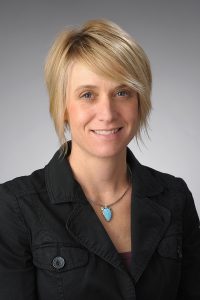
Jane Burrell
Full Teaching Professor, Department of Nutrition and Food Studies
Jane Burrell, M.S., RD, CDN, joined Syracuse University as an Instructor of Nutrition in 2009 and became an Associate Teaching Professor in 2018. Burrell teaches a variety of courses exemplifying her value to the Nutrition and Science Dietetics program, and she had taken advantage of resources at Syracuse University and externally to constantly update her courses and pedagogical approaches.
Burrell received the 2023 Falk College Faculty of the Year Teaching Award, and her student teaching evaluations and peer evaluations are consistently excellent. She has contributed service to her profession, the community, Syracuse University, Falk College and her department in several ways, including as a consultant on nutrition education issues with McGraw Hill Publishing; private consultant with the Syracuse Crunch men’s professional hockey team and the Syracuse University women’s rowing and ice hockey teams; and as a member of the Faculty Senate’s Women’s Concerns Committee.
From Department of Nutrition and Food Studies Chair and Associate Professor Lynn Brann:
“Professor Burrell continually seeks new methods for delivering content and engaging with students. She brings her previous clinical practice work into the classroom to provide students with examples of real-life experiences. This is particularly relevant as she teaches courses within the accredited programs of nutrition and students can relate content to their future potential practice.
“Professor Burrell excels in teaching and has demonstrated effectiveness in teaching smaller graduate seminar courses as well as the large (380 person) introductory nutrition course. She provides leadership in teaching and learning within the nutrition programs and the department. Colleagues see her as a valued resource for sharing teaching methods and techniques for effectiveness. Additionally, Professor Burrell is highly available to students, and she provides a welcoming environment to students in her classes and beyond.”
Learn more about Jane Burrell.
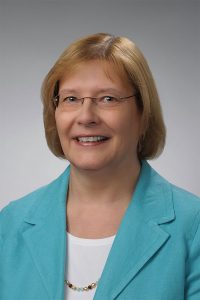
Jennifer Genovese
Associate Teaching Professor, School of Social Work
Jennifer Genovese, A.C.S.W., Ph.D., joined Syracuse University as an adjunct instructor in both Child and Family Studies and Social Work in 2010 and became an Assistant Teaching Professor of Social Work in 2018. Genovese is a skilled and versatile instructor who teaches an impressive array of courses central to the Master of Social Work program.
Genovese’s students clearly enjoy her teaching style and commitment to her profession, and her ability to draw on her professional experience is a consistent theme in her students’ evaluations. She has contributed substantial service during her time at Falk College, including serving as the Master of Social Work Program Director and on several departmental committees; mentoring adjunct faculty; and advising the Social Workers United student group.
From School of Social Work Chair and Professor Carrie Smith:
“Jennifer Genovese is a well-respected and highly sought after mental health practitioner in Central New York. She is also an inspiring teacher. We are very pleased with her recent promotion to Associate Teaching Professor and excited about her continued contributions and leadership in our M.S.W. (Master of Social Work) program.”
Learn more about Jennifer Genovese.
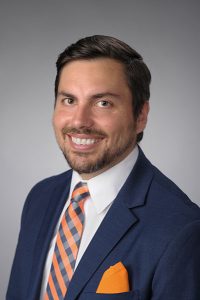
Ryan Heath
Associate Professor with Tenure, School of Social Work
Ryan Heath, L.C.S.W., Ph.D., joined the Syracuse University faculty in 2018 and quickly established a productive and coherent research and grant agenda. Heath has been successful in securing external funding to support his research program. As of Spring 2024, he had been a part of over $15 million in external grants, with $685,000 being awarded to him directly.
This early success in securing external funding demonstrates strong potential future accomplishments related to funding. He is also an active early career scholar as evidenced by his 11 peer-reviewed articles, six of which he serves as lead author. Heath publishes in a wide range of journals, demonstrating the interdisciplinary focus of his scholarship.
From School of Social Work Chair and Professor Carrie Smith:
“The School of Social Work is very pleased that Ryan Heath was promoted to Associate Professor with tenure. Ryan’s research seeks to understand how organized activities during out-of-school time (OST) and community schools promote the healthy development of students from under-resourced backgrounds, students of color, and other historically marginalized youth. His community-engaged research holds great promise for building initiatives that will expand and improve community schools across Central and Western New York. We are proud to have him as our colleague.”
Learn more about Ryan Heath.
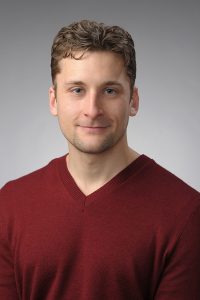
Bryce Hruska
Associated Professor with Tenure, Department of Public Health
Bryce Hruska, Ph.D., joined Syracuse University in 2015 as a Post-Doctoral Fellow, advanced to a Research Assistant Professor in 2017, and was appointed as a tenure-track Assistant Professor in 2018. During this time, he has established an effective and innovative curriculum/teaching/advising profile at the undergraduate and graduate levels. He typically teaches courses focused on research methods and data analysis and has reliably received high ratings on course evaluations.
Hruska has established a productive and coherent research and grant agenda. He has published 38 peer-reviewed articles in quality journals with 18 as lead author, establishing his ability to lead research activities. Hruska has an impressive record of external funding as evidenced by recent success in securing federal NIH (National Institutes of Health) funding.
From Department of Public Health Chair and Professor David Larsen:
“I’m very pleased to see Dr. Bryce Hruska earn promotion to the rank of Associate Professor with tenure,” Larsen says. “His research in traumatic stress holds great promise for better understanding and responding to the complex mental health burdens our society faces. I look forward to continuing to work with him, and am proud to have him as a colleague in the Public Health department.”
Learn more about Bryce Hruska.
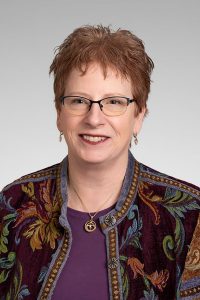
Mary Kiernan
Full Teaching Professor, Department of Nutrition and Food Studies
Mary Kiernan, M.B.A., worked in events at the then-Carrier Dome starting 2000 and was elevated to Catering Manager before being hired as a Chef Instructor in the Nutrition and Hospitality Management program in 2007. She was appointed as an Associate Teaching Professor of Food Studies in 2018. The breadth of courses that Kiernan teaches across the Food Studies and Nutrition programs exemplifies her versatility and value to the department.
Kiernan goes beyond educating her students in culinary and food systems and mentors them for careers and life in general. Her many service contributions include serving as the Undergraduate and Minor Director for Food Studies, Co-Chair of the Syracuse University Community Review Board, and Faculty Senator, and being active in her profession with several local and state organizations.
From Department of Nutrition and Food Studies Chair and Associate Professor Lynn Brann:
“Professor Kiernan is reflective of what has worked in the classroom and uses this knowledge to improve the experience for students. Many of Professor Kiernan’s courses involve cooking/food labs. These hands-on experiences are where she shines in the classroom. Students’ knowledge, skills, and confidence grow over the course of a semester and often this is a result of much trial and error.
“In the Farm to Fork class, she guides students to use fresh local produce to create delicious and nourishing meals. In a different course, she leads nutrition students through the process of developing, procuring, and preparing three-course meals that are enjoyed by the campus and community. Professor Kiernan models professional skills and behaviors to students and supports them inside and outside of the classroom to find their passions.”
Learn more about Mary Kiernan.
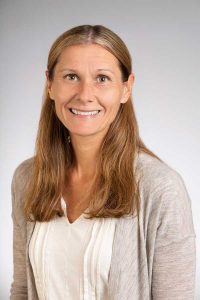
Rachel Razza
Associate Dean of Human Dynamics and Full Professor, Department of Human Development and Family Science
Rachel Razza, Ph.D., joined Syracuse University in 2007 as an Assistant Professor and was promoted to Associate Professor with tenure in 2015. She is an accomplished scholar who has made significant contributions to the field of human development through peer reviewed journal articles, book chapters, academic presentations, and invited lectures. The research program she has established has been supported by external funding totaling nearly $700,000, with additional grant submissions currently under review.
Razza has made significant service contributions to the Department of Human Development and Family Science as chair, graduate program director, and member of several departmental and college committees. Her service contributions extend beyond Falk College as she has been a member of numerous University-level committees and an active leader in multiple professional organizations.
From Falk College Dean Jeremy S. Jordan:
“Dr. Rachel Razza’s promotion to Associate Dean reflects her exceptional contributions to our college. Her extensive research experience, leadership roles, and service commitments have prepared her well for this new position. As Associate Dean, Dr. Razza will undoubtedly leverage her expertise to further enhance our academic programs and research initiatives, continuing to make a significant impact on our college and the broader field of human dynamics.”
Learn more about Rachel Razza.
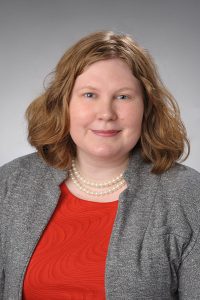
Sara Vasilenko
Associate Professor with Tenure, Department of Human Development and Family Science
Sara Vasilenko, M.S., Ph.D., joined the Syracuse University faculty in 2018 and since that time has developed six courses at the undergraduate and graduate levels. In 2022, she was nominated by her graduate students to receive the University-wide Excellence in Graduate Education Award, and she was honored with the Falk College 2020 Faculty of the Year in Research Award.
Vasilenko’s research has been funded by numerous internal and external grants from prestigious sources, including the National Institute on Alcohol Abuse and Alcoholism, National Institute of Child Health and Human Development, and National Institute on Drug Abuse. For an early career academic, Vasilenko has an impressive publication record with 67 peer-reviewed publications and nearly 2,500 citations of her work. Since arriving at Syracuse University, she has published 12 first-authored journal articles and five book chapters.
From Department of Human Development and Family Science Chair and Associate Professor Matthew Mulvaney:
“Dr. Vasilenko is both an excellent researcher and transformative mentor in our graduate program. The impact of her work is being felt throughout the field of adolescent health. Her innovative and complex research projects employ cutting-edge methodologies to answer some of the most pressing questions central to adolescent well-being.
“Her work is consistently published in the highest-ranked journals and widely cited. Dr. Vasilenko also serves as an exemplar of a scholar-mentor, training the next generation of scholars in her lab that will make further advancements to the field. She offers her time and expertise generously in order to train scholars to the very highest level and so has been recognized with the university-wide Excellence in Graduate Education Award. Her students in her classes and lab have the opportunity to make their own unique impact on the field through their own high-level scholarship.”
Learn more about Sara Vasilenko.
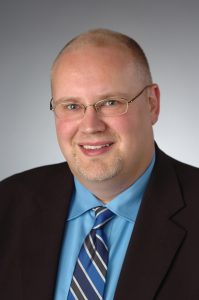
Patrick Walsh
Department Chair and Full Professor, Department of Sport Management
Patrick Walsh, Ph.D., joined Syracuse University in 2014 as Assistant Professor in the Department of Sport Management and was promoted to Associate Professor with tenure in 2017. His program of research focused on sport marketing and brand management has resulted in 39 peer-reviewed journal articles, establishing him as a leading scholar in the field.
Walsh has engaged in noteworthy department, college, university, and professional service activities. At the departmental level, he is coordinator for the Emerging Sport Enterprises Minor and the Sport Revenue Management and Operations Minor. At the college level, he has served on the Falk College Faculty Council, Promotion and Tenure Committee, and Grievance Committee.
From Falk College Dean Jeremy S. Jordan:
“Dr. Patrick Walsh’s appointment as department chair marks an exciting new chapter for our Sport Management program. His expertise in sport marketing and brand management, combined with his experience in program coordination and college service, positions him perfectly to lead the department. As chair, Dr. Walsh will undoubtedly enhance our curriculum, strengthen our research profile, and prepare our students for successful careers in the rapidly evolving sports industry.”
Learn more about Patrick Walsh.
Page 2 of 21
